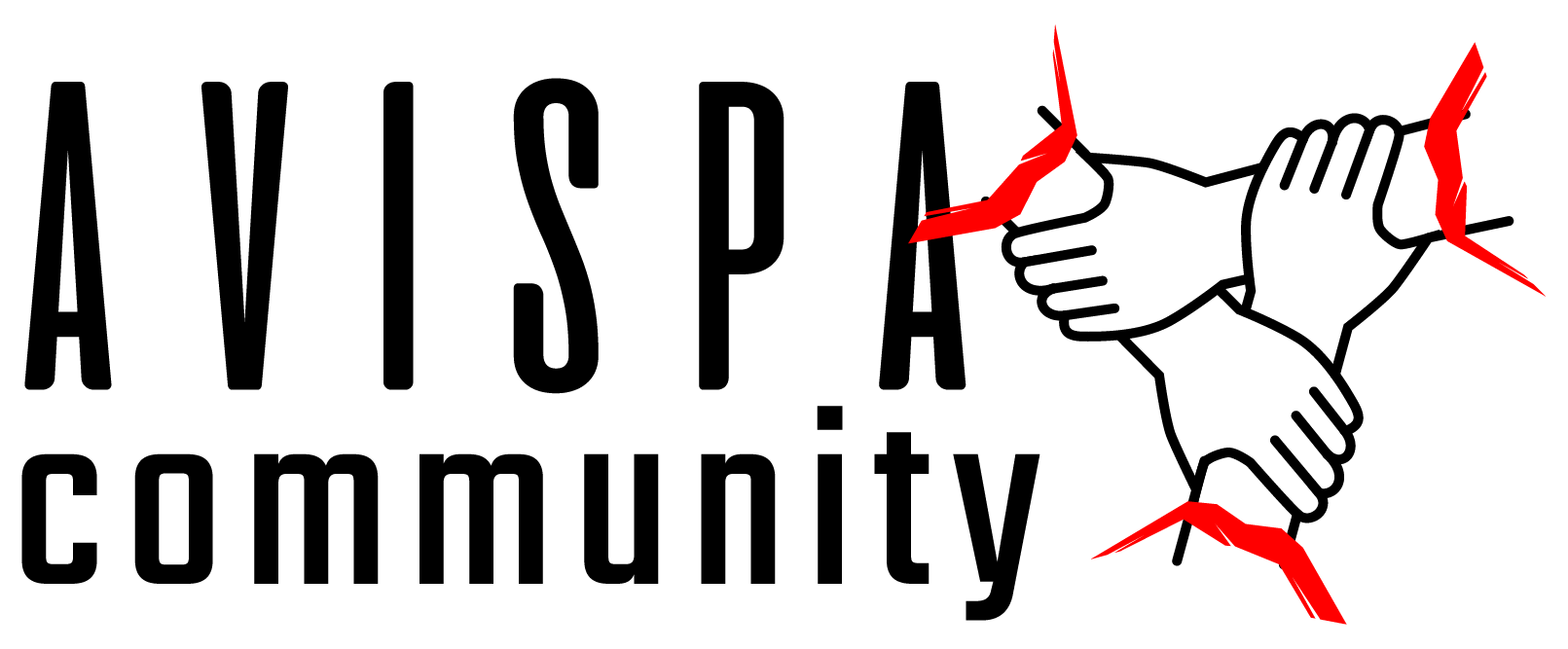Cover image: Migrant families in front of the bus station in Tuxtla Gutiérrez, Chiapas
Twelve migrants were killed last week in different tragic events, but these events did not take place by chance. According to human rights defenders, the situation has been triggered by the violent and inhumane immigration policies being implemented by the Mexican state.
On Thursday, September 28, a truck overturned at kilometer 125 on the Malpaso-La Herradura highway in Chiapas. Crowded in the vehicle were 52 migrants, 2 of whom died, and 27 others injured. The injured were sent for medical attention in Tuxtla Gutiérrez, 6 of them were minors.
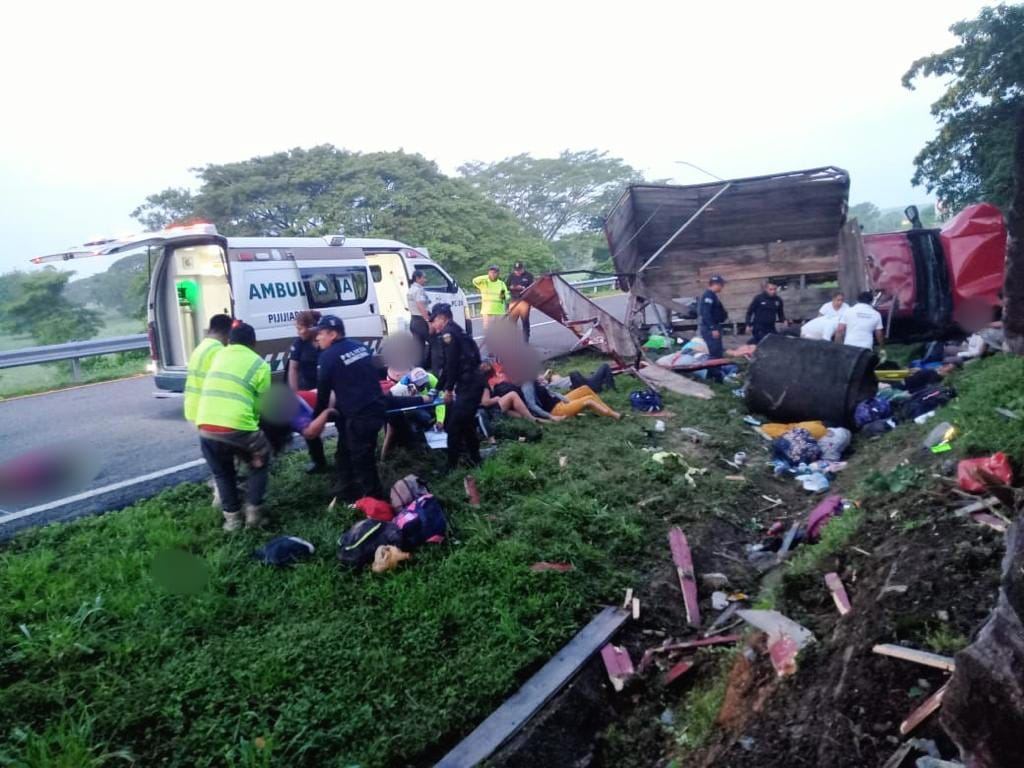
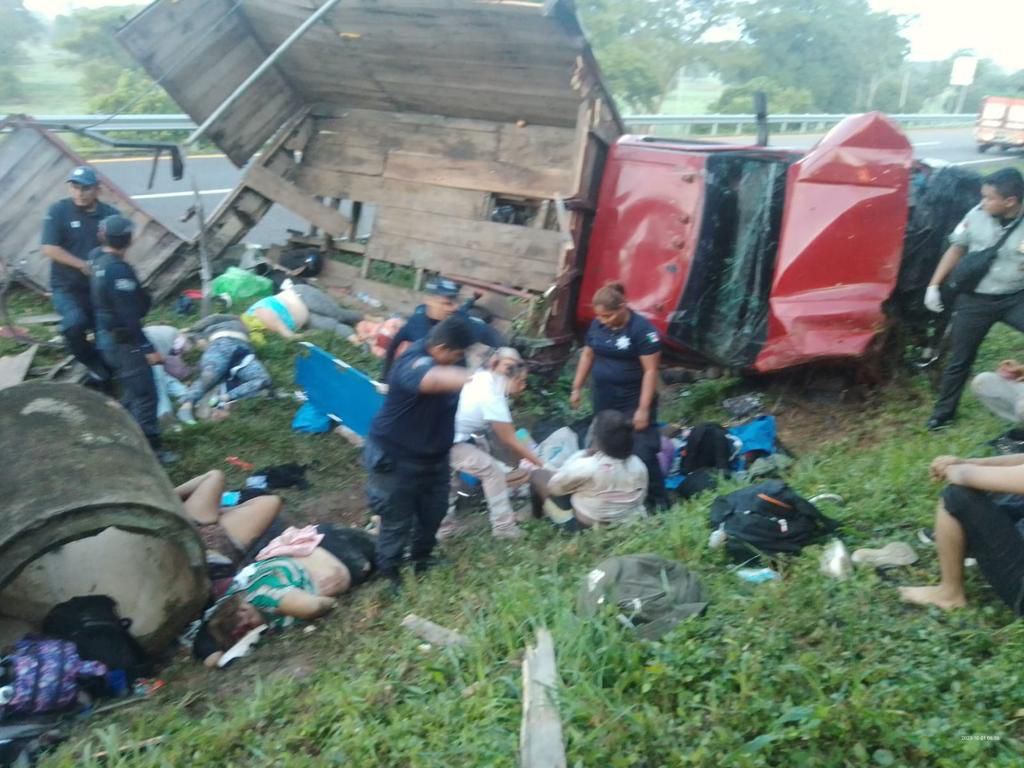
Twenty-four of the 27 injured were from Guatemala, one from Ecuador, one from Venezuela, and another of unknown nationality.
During the early morning hours of October 1, a cargo vehicle carrying 27 Cuban migrants was involved in a crash killing 10 women. The accident occurred at kilometer 134 of the Pijijiapan-Tonalá highway in Chiapas, where events like this have become recurrent.
The remaining 17 people were severely injured: 16 of them taken to a hospital in Pijijiapan, and the other to a hospital in Huixtla. However, the different institutions refused to provide information regarding the condition of the hospitalized.
“The state must carry out prompt, exhaustive, and impartial investigations of those responsible for, and the causes of, this accident. It must provide attention to the victims and their family members,” announced the Colectivo de Monitoreo Frontera Sur.
Made up of different organizations with a presence in Chiapas, the collective reiterates that these events are not isolated, but are the direct consequence of policies that restrict, contain, and detain migratory flows.
“It is worrying how these policies generate a context of violence, precarity, and risk for thousands of people who for different reasons have had to leave their countries,” signaled the collective. They are forced to resort to unsafe and clandestine routes, exposing themselves to abuse, extorsion, and death.
The collective asked for the identification and delivery of the bodies to their families, as well as payment for their transfer and burial, “so that the families are fully compensated for the damage done.”
The human rights defenders pertaining to the collective demand justice. They recalled another accident 2 years ago on the Corzo-Tuxtla highway, where 55 people died and 114 were injured. The families never received reparations for the damage.
Containment Expands in Chiapas
On September 26, the National Institute of Migration (INM) announced that their commissioner, Francisco Garduño Yáñez, “depressurized” Tapachula, Chiapas, by removing 8,152 people who were waiting for their turn at the Mexican Commission for Refugee Assistance (COMAR).
The migrants were transferred in 189 buses and 73 vans to Tuxtla Gutiérrez, Huixtla, San Cristóbal, and Palenque, Chiapas; along with Villa Hermosa, Tabasco, and Acayucan, Veracruz.
These transfers are not something new, they began just after the fire at the migrant processing station of the National Institute of Migration in Ciudad Juárez, Chihuahua. “The transfers are made from the entry bridge in Suchiate to Tuxtla and recently to other states of the republic,” explains Karen Martínez of Jesuit Refugee Services.
“Oaxaca is another state that has been overwhelmed because the buses are also taking migrants there. However, the National Institute of Migration does not provide clear information, nor do they indicate the total number of people who have been transferred. There is no control over the process,” said Martínez.
Organizations pertaining to the Colectivo de Monitoreo Frontera Sur have documented the exit of at least 10 buses daily from Suchiate and Tapachula traveling each with around 40 migrants on board.
In testimonies of migrants and asylum seekers who have arrived to Tuxtla Gutiérrez in this manner, they explain that the transfer is provided in exchange for signing documents in which the migrants lose their rights to legalize their migration status or access to international protections.
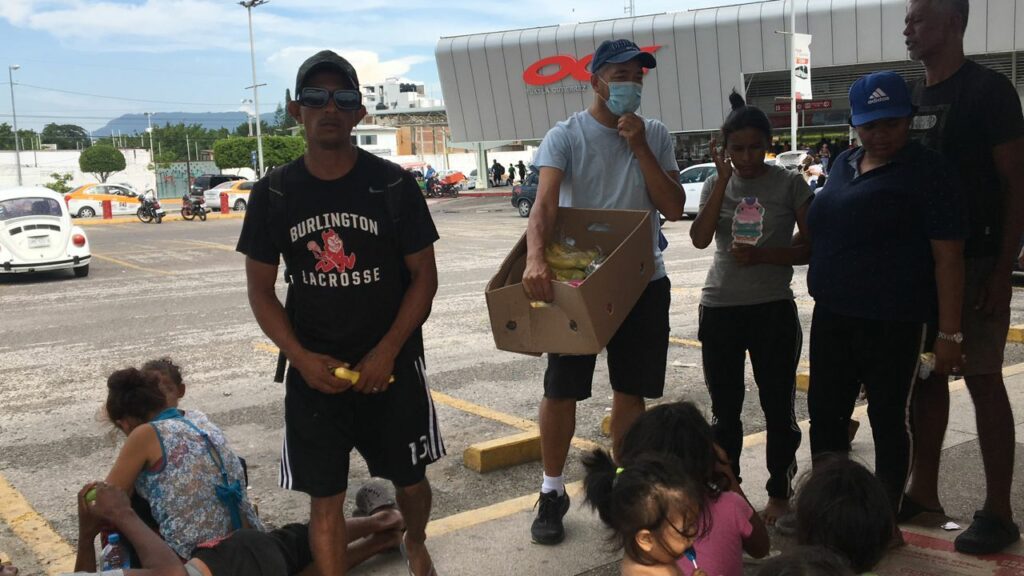
If people try to travel directly from Tuxtla Gutiérrez to Mexico City, they are intercepted in one of the five checkpoints between Chiapas and Veracruz where even the Attorney General’s Office is involved. These migrants are returned to the capital of Chiapas.
Yannet Gil Ardon, founder of the shelter “Una ayuda para ti mujer migrante” explained that the people in transit who are detained in northern Mexico are also being transferred to Tuxtla Gutiérrez in Chiapas: “The INM practically throws them at the bus terminals, taking away or destroying their official documents.”
“The most prevalent nationality amongst the migrants is Venezuelan, and regularly they are entire families,” explained the human rights defender to Avispa Midia. Furthermore, she mentioned that the cases of missing persons have increased, “certain people arrive at the bus terminals to offer help to migrants, then they take them away and nothing else is ever known of them.”
Increasing Numbers
Following the fire at the migrant station in Ciudad Juarez, Chihuahua, in which 40 people were killed, the National Institute of Migration’s dynamic has changed, but only in a superficial way. They announced the closure of more than 30 provisional migrant stations due to a review from the National Commission of Human Rights (CNDH) related to the conditions of the facilities.
The study was carried out without considering the principle victims of the human rights violations in those spaces, which for years have been documented by journalists and human rights defenders.
Since July, the statistics provided by the Unit for Migration Policy, Registry, and Identity of Persons (UPMRIP), linked to the Secretariat of the Interior (SEGOB), have not been updated. But as of the month of July, they reported the “illegal entry” of 317,334 people: 93,732 women and 223,602 men.
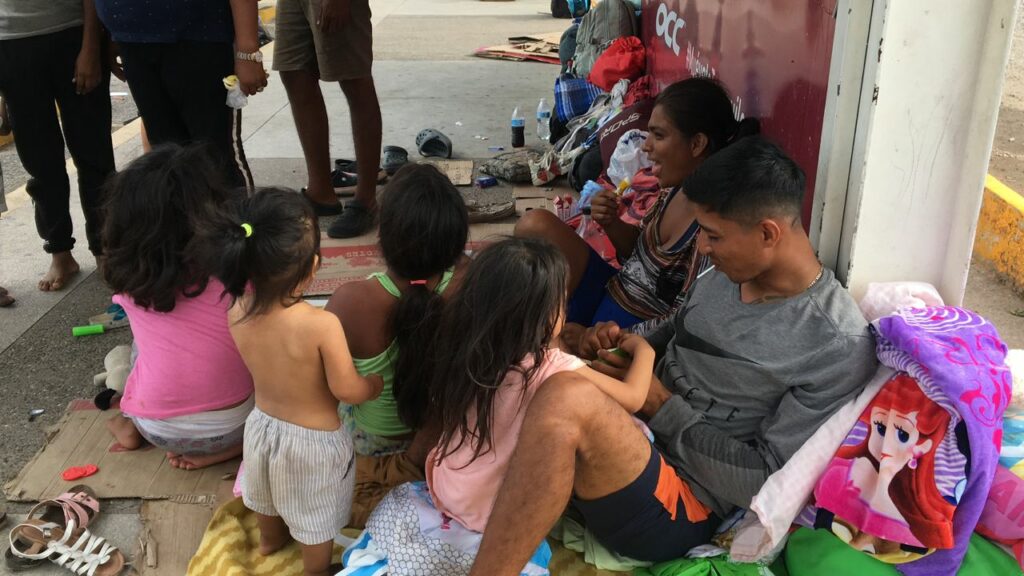
A total of 140,671 of the migrants are from South America, far exceeding Central America with 102,106 entries. With 87,063 entries, Venezuela is the nationality with more reported “illegal” migration, followed by Honduras with 50,655, Guatemala with 35,426, and Ecuador with 30,252.
The report also mentions that 117,076 people were detained in Chiapas during the first half of the year, with the highest number detained in Tapachula (58,447), Suchiate (11,541), Huixtla (11,223), Arriaga (8,859), Huehuetán (7,151), and Palenque (4,718).
Meanwhile, the Mexican Commission of Help to Refugees published numbers up until August, where they registered 99,881 applicants, 33,127 more than during the same time period in 2022. Currently, Haiti, Honduras, Cuba, El Salvador, Venezuela, Guatemala, Brazil, and Chile top the list.
Regardless, the numbers do not show the reality of how many migrants are waiting to be attended to in the different municipalities of Chiapas. Some testimonies explain how they can’t even make an appointment with the digital platform, since the geolocation asks them to be in the north of the country, where, no matter how many attempts they make, they cannot reach.


